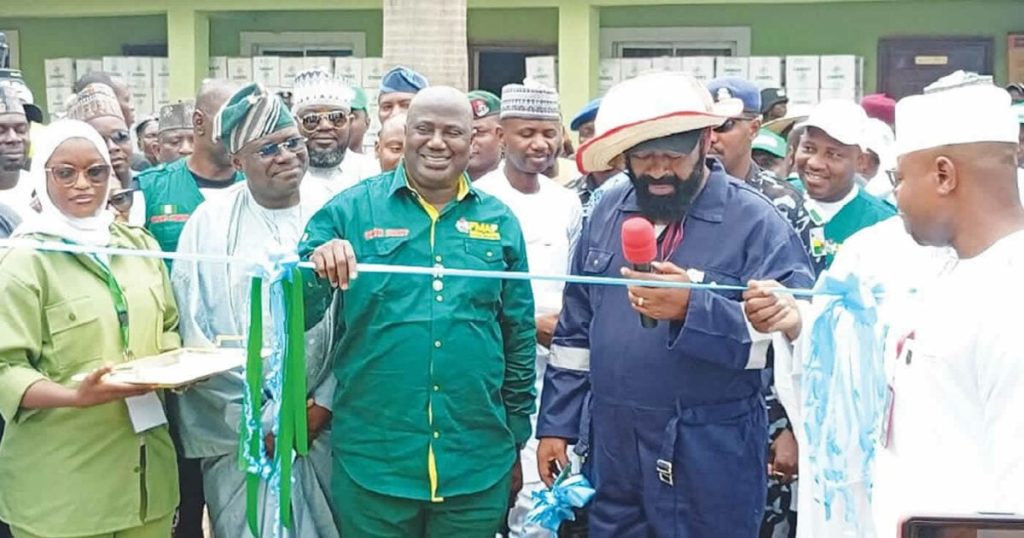Paragraph 1: A New Dawn for Niger State’s Women Farmers
Niger State Governor Mohammed Bago announced a groundbreaking initiative aimed at empowering women farmers and bolstering the state’s agricultural sector. This initiative involves a partnership with Russian investors interested in sourcing tropical fruits directly from the women. The governor envisions a scenario where each participating woman cultivates fruits like bananas, mangoes, guavas, cashews, or pawpaws, receiving guaranteed monthly payments of N100,000. This income stream promises to elevate the financial independence of these women, contributing significantly to their families’ economic well-being and enhancing food security within the state.
Paragraph 2: Empowering Women through Agriculture
The core of Governor Bago’s vision lies in empowering women by leveraging Niger State’s abundant agricultural potential. The state, with its vast arable land and favorable climate, is ideally suited for the cultivation of tropical fruits. By providing women with the necessary seedlings, training, and a guaranteed market through the Russian investors, the initiative aims to create a sustainable income-generating opportunity. This direct engagement with international markets bypasses traditional middlemen, ensuring that the women receive a fair price for their produce and reap the full benefits of their labor.
Paragraph 3: A Multi-Pronged Approach to Agricultural Development
Beyond the partnership with Russian investors, Governor Bago outlined a comprehensive agricultural development plan for Niger State. This includes the establishment of a dedicated Cooperative Bank of Niger with a N2 billion capitalization, specifically focused on providing agricultural loans. This specialized bank aims to alleviate the financial burdens faced by farmers by offering loans at reduced interest rates and more accessible terms through cooperative associations. This initiative complements the federal government’s efforts to strengthen food security and reduce poverty nationwide.
Paragraph 4: Federal Government Support and Synergy
The federal government, through the Ministry of Agriculture, has demonstrated its commitment to supporting Niger State’s agricultural transformation. A flag-off ceremony marked the distribution of essential farm inputs and equipment to small-scale farmers, emphasizing the government’s commitment to all-year-round farming. This timely intervention will significantly reduce the high cost of farm inputs and support smallholder farmers, ultimately contributing to increased food production, job creation, and affordable food prices for Nigerians. The collaboration between the federal government and Niger State showcases a synergistic approach to agricultural development.
Paragraph 5: Niger State: A Model for Agricultural Revolution
Niger State, with its vast expanse of arable land (76,000 square kilometers) and abundant water resources, stands as a model for agricultural advancement in Nigeria. Its location within the Guinea Savannah zone provides a unique advantage for all-year-round farming, making it a prime location for the federal government’s pilot initiative. The distribution of free agricultural inputs, including herbicides, fertilizers, pesticides, growth enhancers, power tillers, water pumps, grinding machines, and tricycles, directly benefits farmers, particularly women, youth, and people with special needs, further solidifying the state’s role as an agricultural powerhouse.
Paragraph 6: Inclusive Growth and Gender Equity in Agriculture
The agricultural initiatives in Niger State prioritize inclusivity, with a special emphasis on empowering women farmers. In line with the National Gender Policy on Agriculture, 35% of the distributed inputs are reserved for women, ensuring their active participation in the agricultural transformation. The Ministry of Agriculture is collaborating closely with state governments, farmers’ cooperatives, and the private sector to ensure that these vital resources reach genuine farmers, maximizing their impact and promoting equitable growth within the agricultural sector. This holistic approach not only boosts agricultural productivity but also contributes to poverty reduction and overall societal development.














